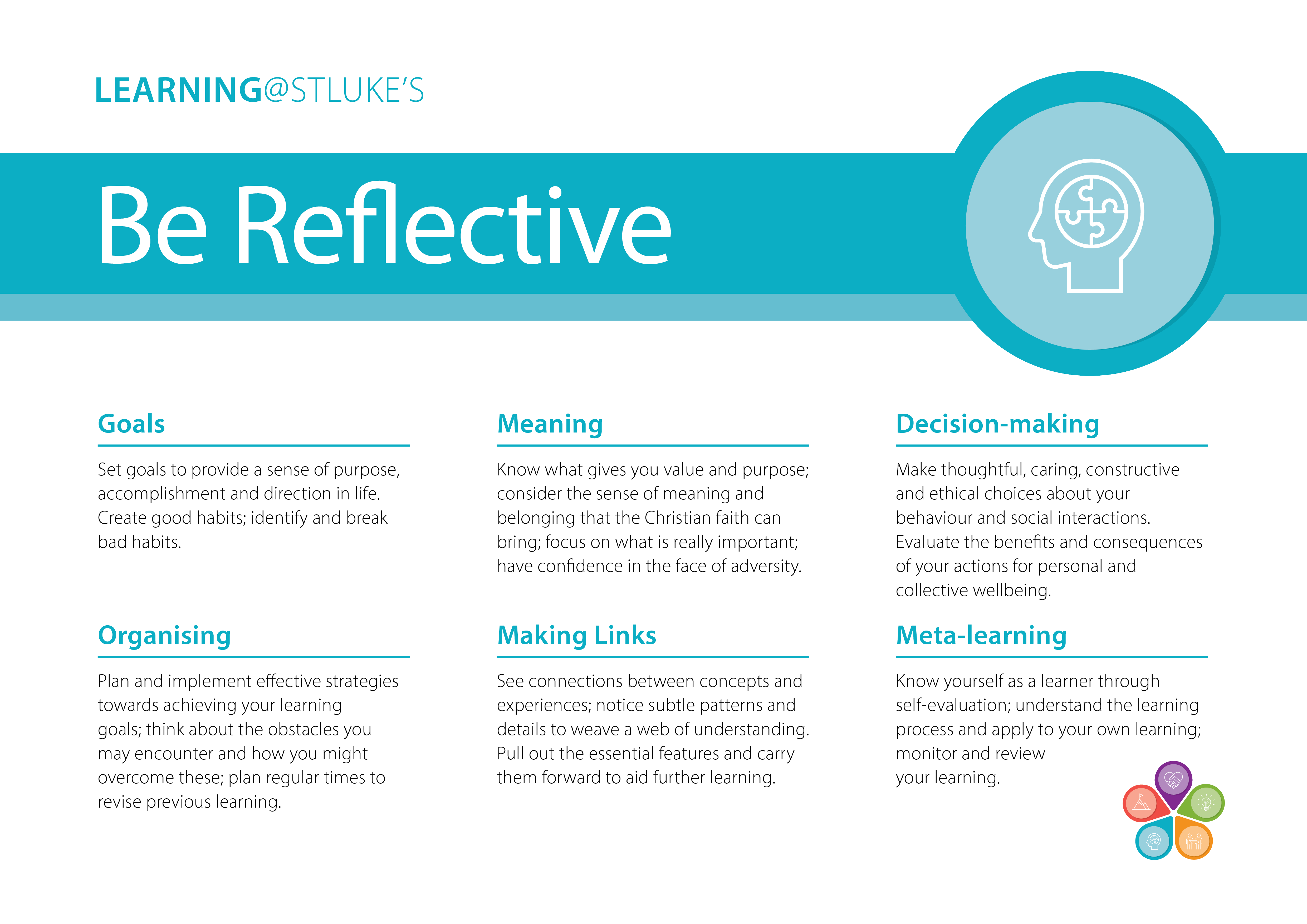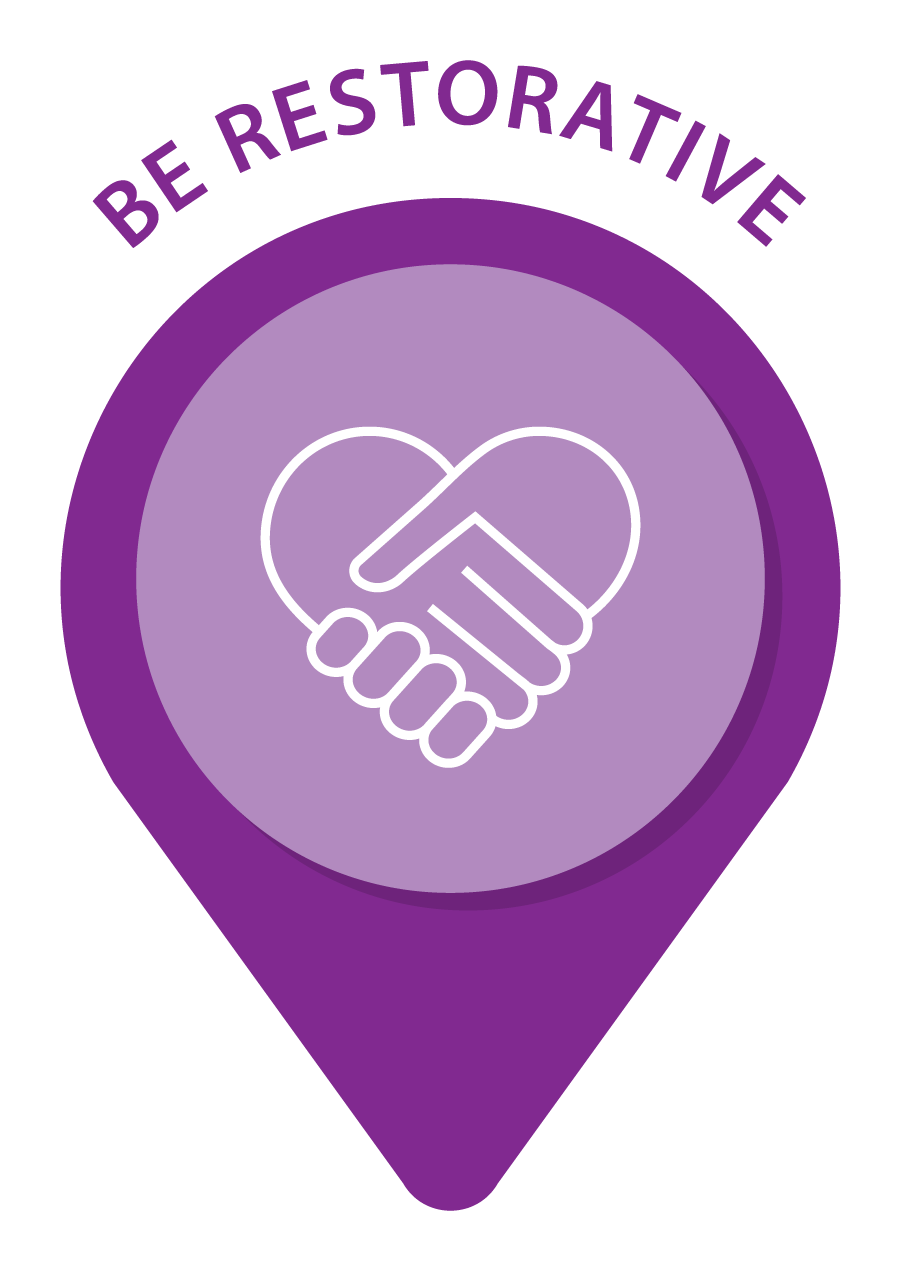
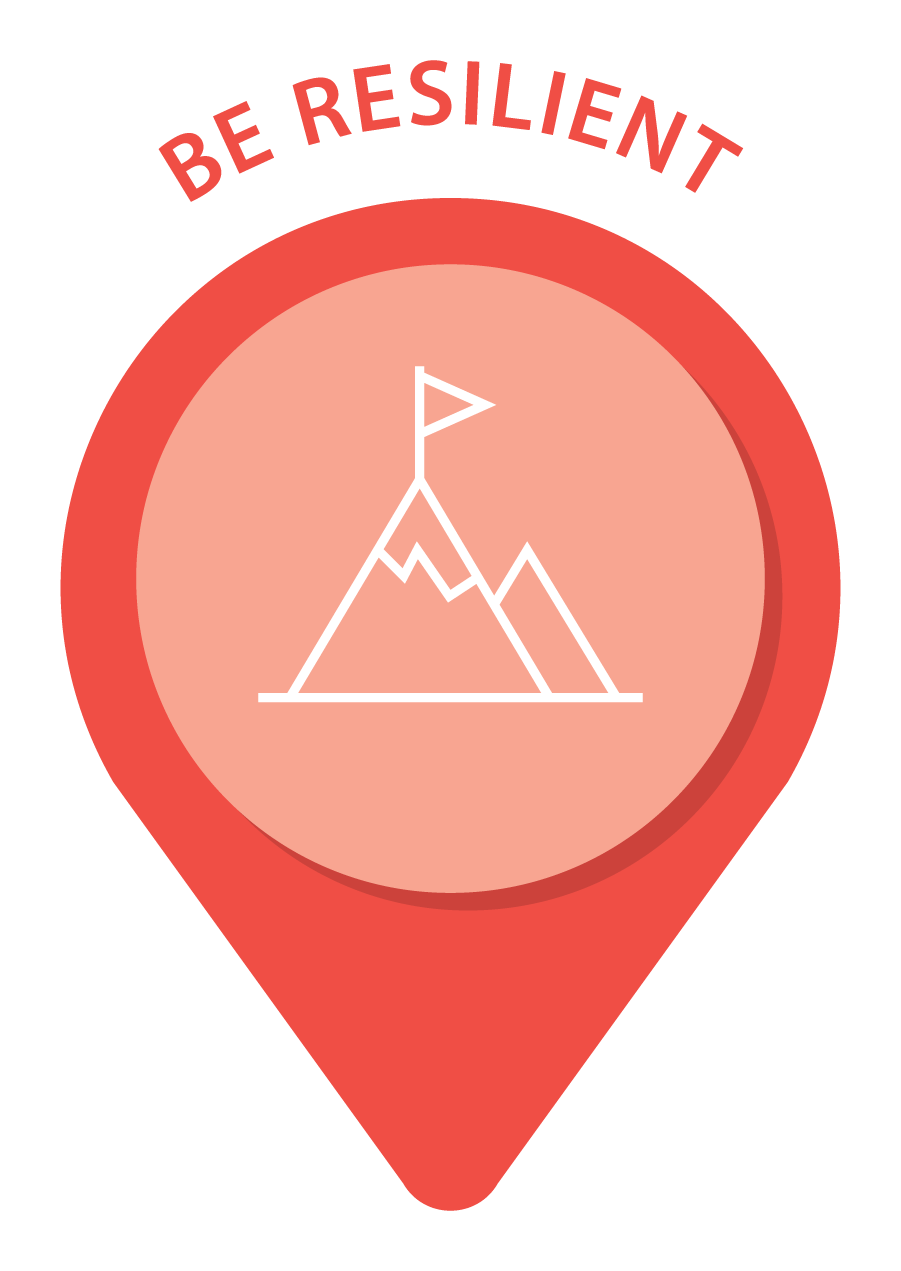
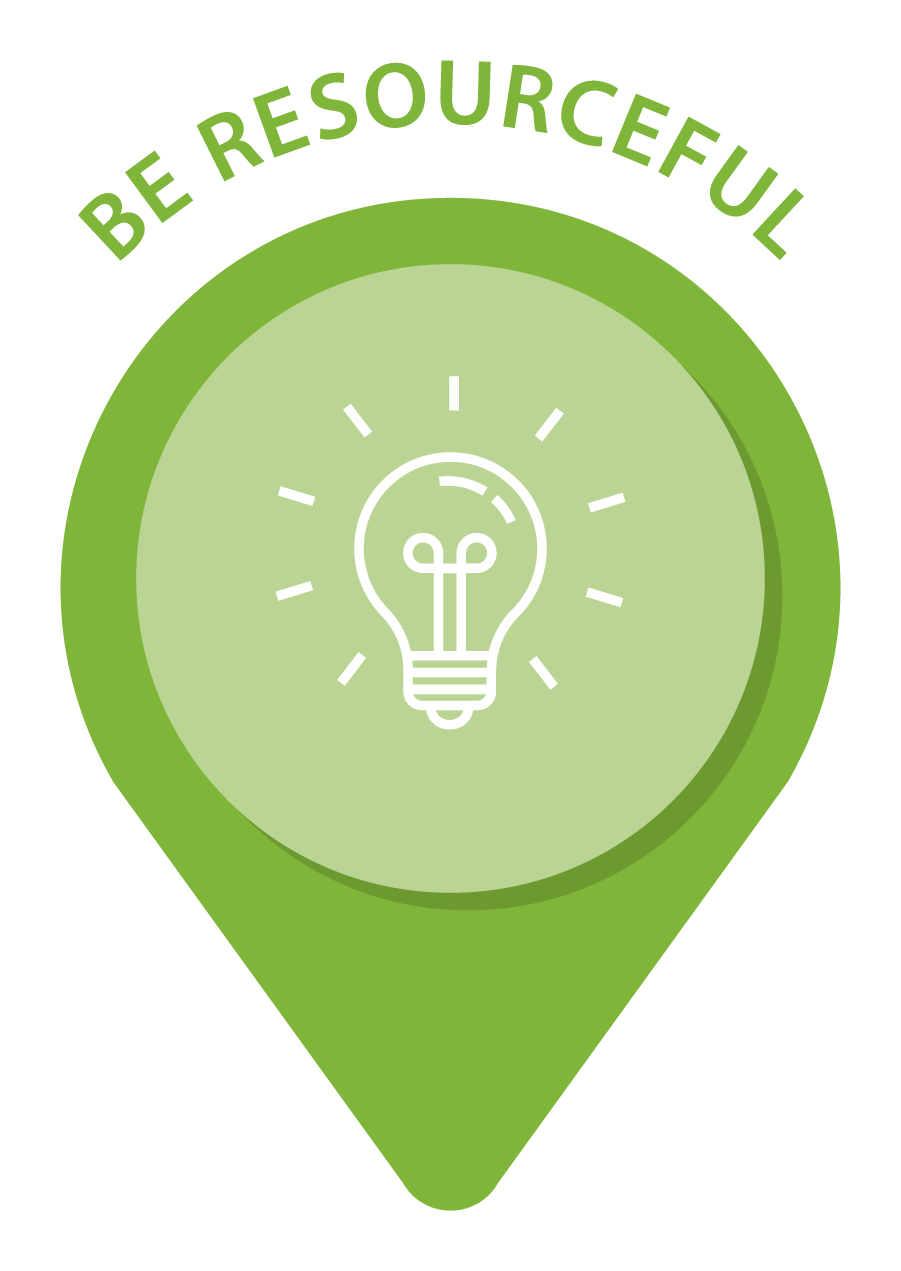
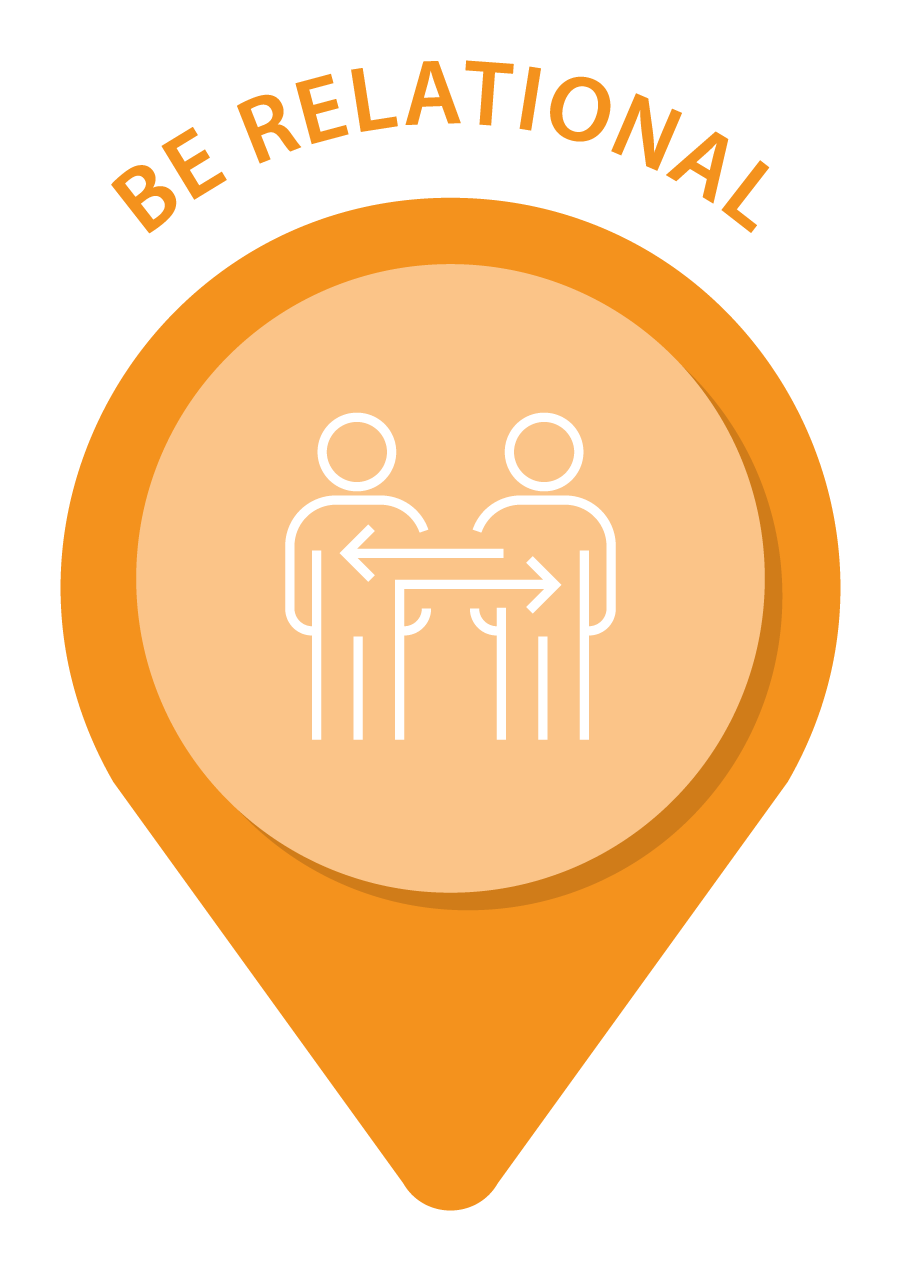
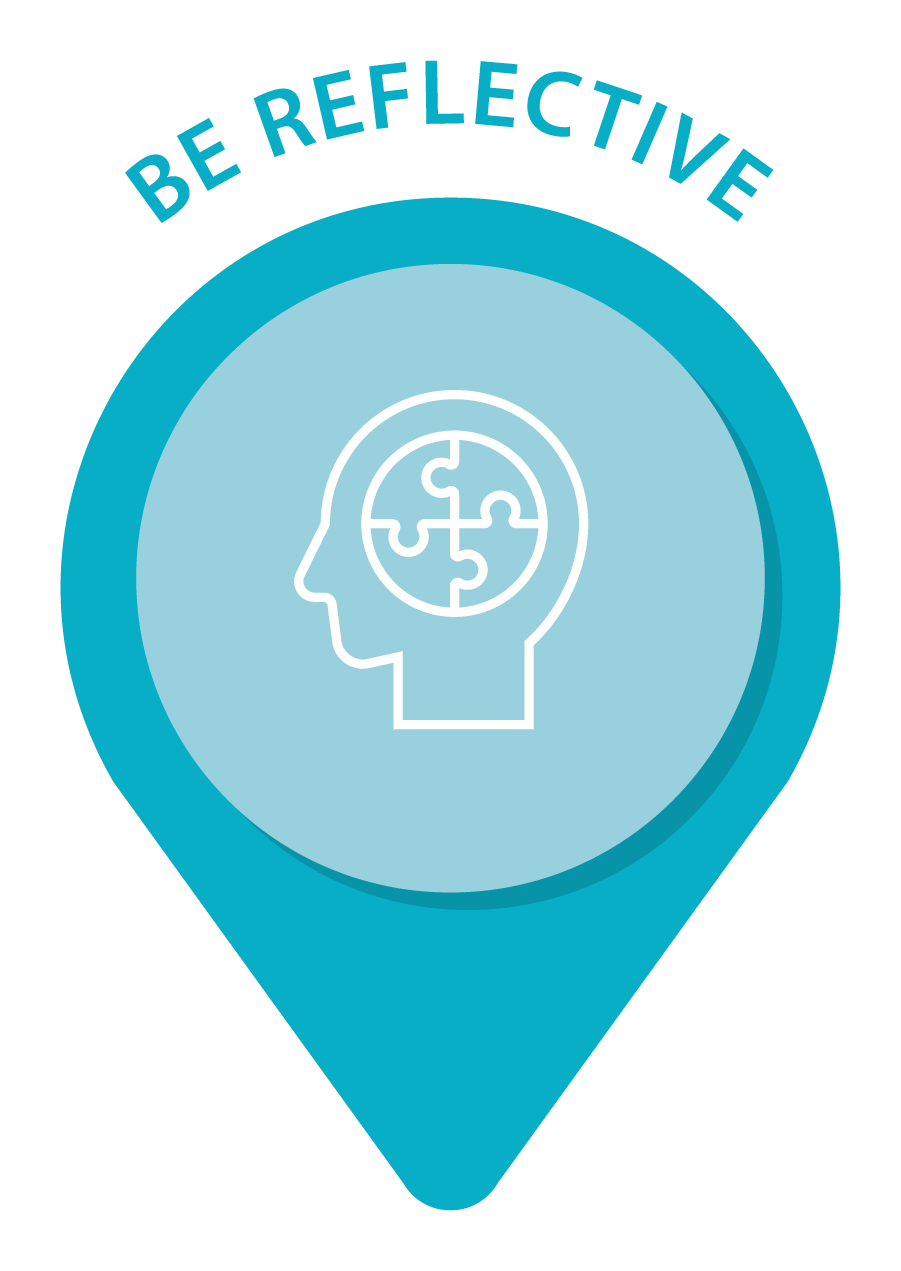
Be Restorative
We seek to grow students, not only as learners, but more importantly as people who thrive, and who are characterised by kindness, grace, compassion, joy, humility and seeking justice for others. Not only are students able to grow in their academic understanding, they are also able to establish character which allows them to see beyond themselves and clearly see their responsibility as a global citizen.
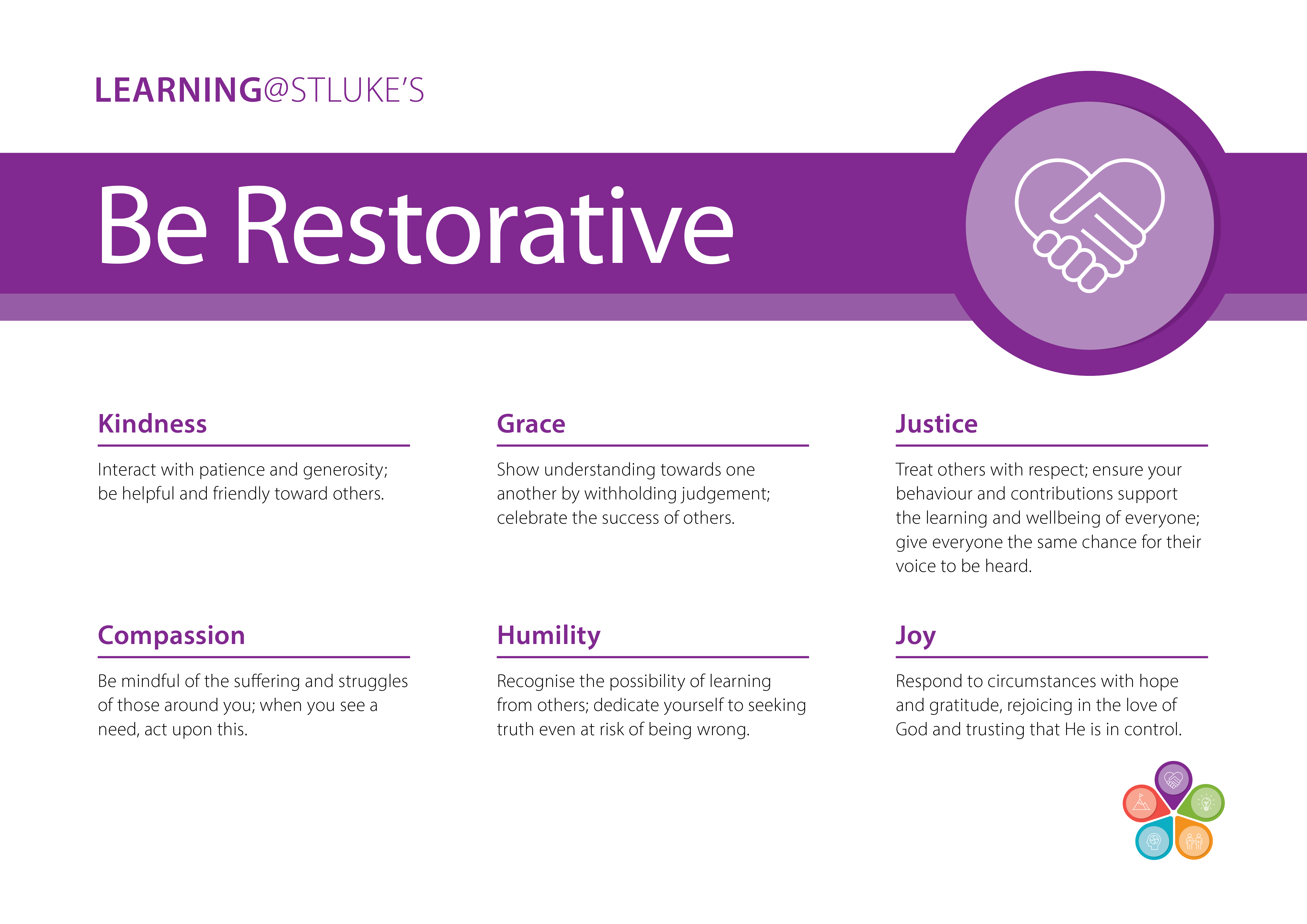
Be Resilient
Resilient learners are able to persevere in their learning. They can manage distractions around them and act on their understanding of emotional management to ensure that they cope in all types of situations. Students who are resilient are self-aware can identify how emotions impact their learning and life. They have the ability to learn from failure and show adaptability in their approach.
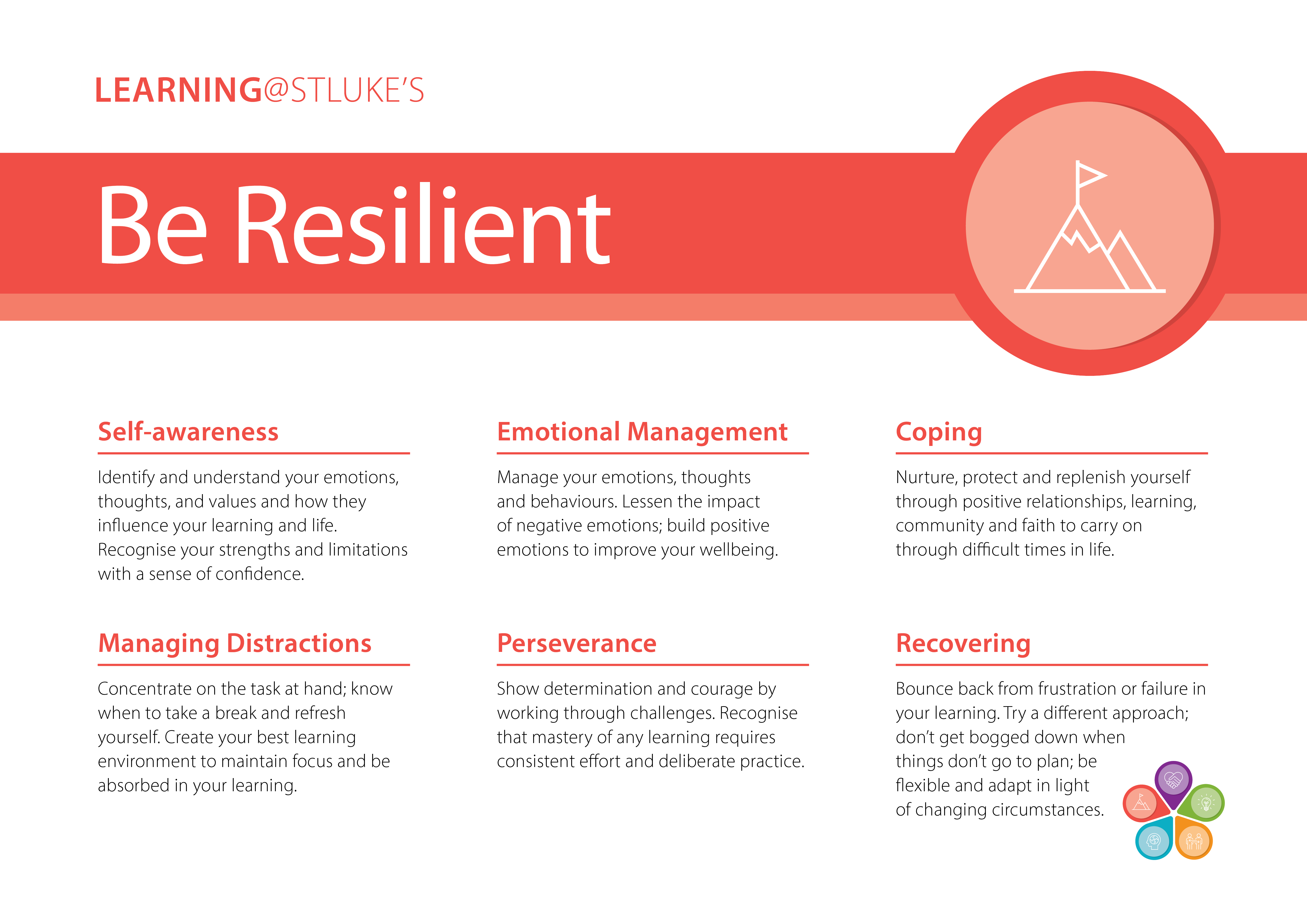
Be Resourceful
Resourceful students use curiosity to support their learning and to broaden their thinking. They understand the powerful role that rest and movement play in their wellbeing and they have established good routines for rest. These students use reasoning to form an argument and imagine new possibilities. Finally, resourceful learners are able to capitalise on the resources available to them inside and outside the classroom.
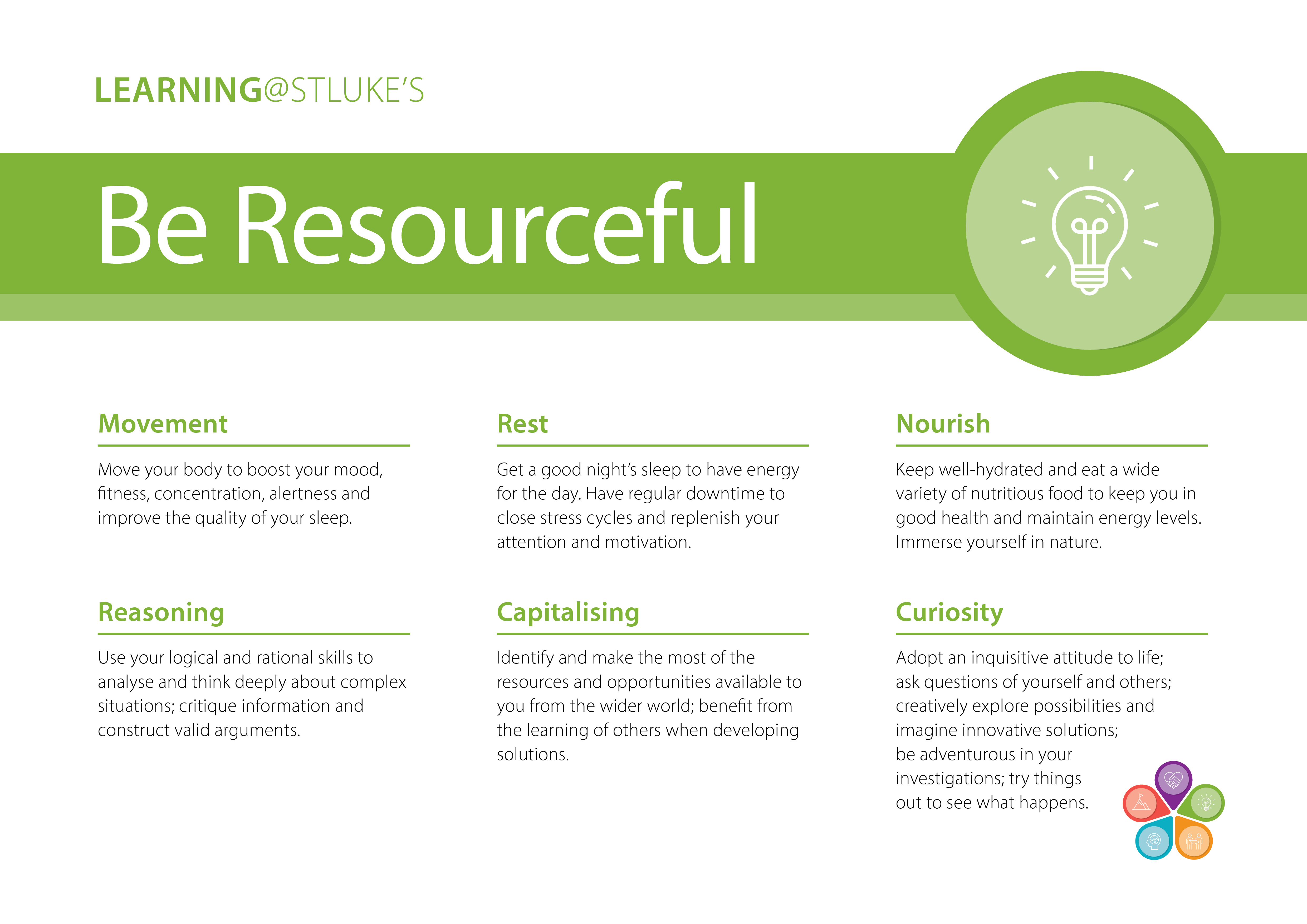
Be Relational
Students who have strong relational capability are able to interact in an inclusive manner by respecting boundaries and actively listening. They know the roles and responsibilities for effective collaboration with other students and take on board new ways of thinking (imitating) to assist their learning. These students make wise decisions about when to learn on their own or with with others, and they serve others with compassion and generosity.
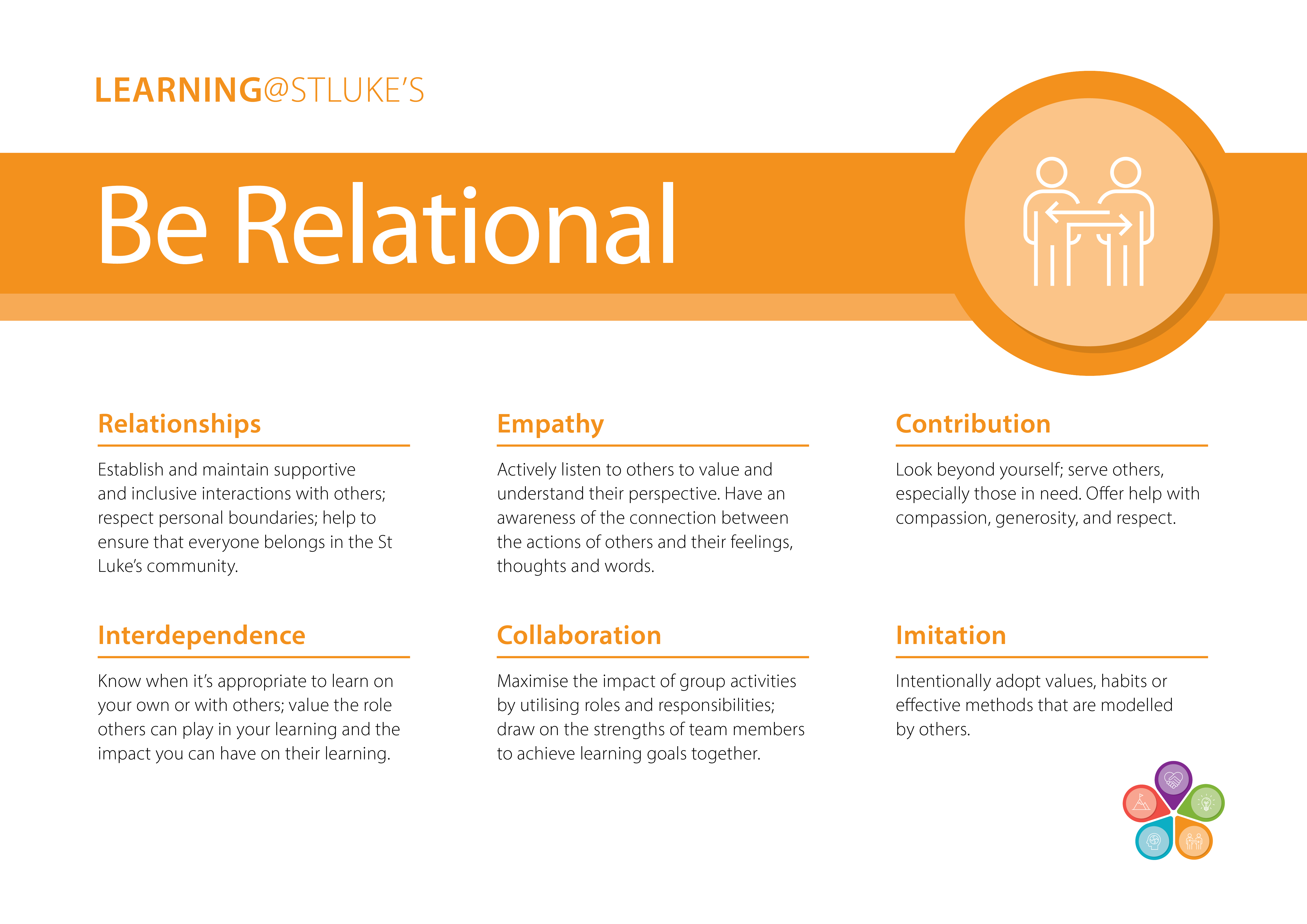
Be Reflective
Reflective learners plan their approach to their learning, continually revise how they are learning, are able to identify the links and connections within their knowledge. They use effective strategies to make decisions and set goals with a sense of purpose. These students have a good understanding of their own strengths and weaknesses as a learner (meta-learning) and they can articulate their values.
